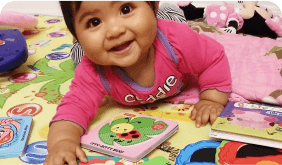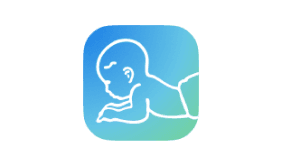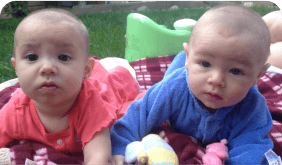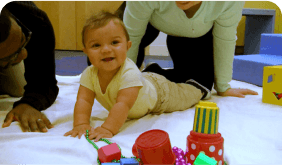Baby hiccups are a normal, involuntary reflex often occurring during or after feeding, caused by the diaphragm muscle.
Common triggers for baby hiccups include overfeeding, eating too quickly, and swallowing air, but hiccups are harmless and typically subside in 5-10 minutes.
To manage baby hiccups, burp baby during feedings, slow down feeding pace, hold baby upright after feeding, and consult a healthcare provider if you have concerns about hiccups or digestion.
Everything baby does is adorable, including cute baby hiccups! If baby hiccups it may startle you at first, but it is a completely typical part of feeding, and can be a sign baby is developing their feeding skills! Learn more about why baby hiccups and what to do.

What causes baby hiccups?
Just like adults, baby has no control over hiccupping. Baby hiccups are an involuntary reflex that is caused by the diaphragm, a muscle at the bottom of the rib cage that helps with breathing. There isn’t always a clear cause; sometimes it seems like hiccups come out of nowhere!
If baby does hiccup, it’s often during or after feeding. Some of the possible causes for hiccups in baby could be:
Overfeeding
Eating too quickly
Swallowing air
These can cause air to be trapped in the stomach. The excess air may cause pressure against the diaphragm, which causes hiccups. Hiccups are completely harmless to baby, so there’s nothing to be worried about if your little one hiccups!
What should I do if baby hiccups?
Hiccups will often naturally go away, so there is nothing you need to do to help baby hiccup or get rid of hiccups. Hiccups typically subside in 5-10 minutes.
Some best practices for how to handle baby’s hiccups are:
If baby starts to hiccup during feeding, stop feeding and wait for hiccups to subside.
Be sure to burp baby during feeding. This can get rid of excess gas in their stomach, which means they may not get hiccups.
If baby is getting hiccups regularly, try slowing down their feeding. They may be eating too quickly. You also may need to look at the nipple size of the bottle, as this impacts how fast or slow they feed.
Be sure to hold baby upright after feeding. This also helps with digestion.
What is the difference between hiccups and baby reflux?
While hiccups are caused by reflexes in the diaphragm, baby reflux is caused by food moving up from baby’s stomach. Sometimes hiccups can accompany reflux, but they are not the same thing.
If baby is experiencing uncomfortable or forceful reflux, they may be dealing with a condition called GERD.
If you have any questions or concerns about baby’s hiccups or digestion, talk to baby’s healthcare provider.





